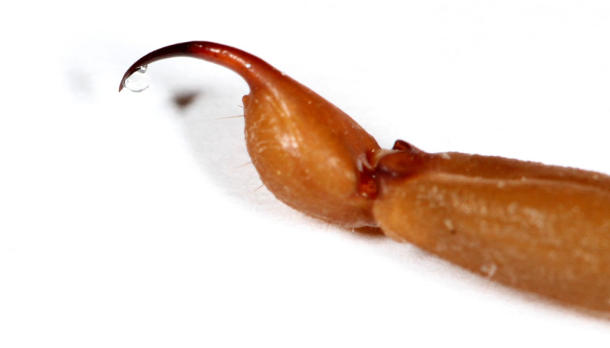 WIKIMEDIA, CLINTON & CHARLES ROBERTSONAntidotes to scorpion venom may have been lurking under our noses for quite a while. Researchers in Brazil have found that they could keep mice stung by scorpions from succumbing to the toxic effects of the venom by administering the anti-inflammatory drugs indomethacin or celecoxib. The team, led by investigators at the University of São Paulo, published its results yesterday (February 23) in Nature Communications.
WIKIMEDIA, CLINTON & CHARLES ROBERTSONAntidotes to scorpion venom may have been lurking under our noses for quite a while. Researchers in Brazil have found that they could keep mice stung by scorpions from succumbing to the toxic effects of the venom by administering the anti-inflammatory drugs indomethacin or celecoxib. The team, led by investigators at the University of São Paulo, published its results yesterday (February 23) in Nature Communications.
The team administered either indomethacin or celecoxib to mice dosed with scorpion venom, finding that both anti-inflammatory drugs protected against death. If the drugs have the same effects in humans, they could become regular fixtures of first-aid kits, obviating the need for expensive, more-volatile, and less-widely applicable antibody-based antivenoms. “The possibility for a generic treatment is exciting,” Yale University immunologist Noah Palm, who was not involved in the work, told Chemical & Engineering News.
The anti-inflammatory drugs apparently blocked prostaglandin E2, a lipid signaling molecule that causes lung edema and inflammation in animals stung by scorpions. This saved the mice from the deadly effects of the toxin. Lucia Faccioli of the University of São Paulo told Chemical & Engineering News that her team next plans ...



















